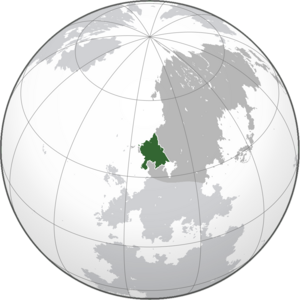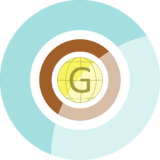Jukasa
This article is a work in progress. Any information here may not be final as changes are often made to make way for improvements or expansion of lore-wise information about Gentu. Please comment on this article's talk page to share your input, comments and questions. Note: To contribute to this article, contact User:Philimania. |
Republic of Jukasa | |||||||
|---|---|---|---|---|---|---|---|
| Motto: "ᠠᠷᠠᠳ ᠲᠦᠮᠡᠨ ᠦ ᠰᠠᠶᠢᠨ ᠰᠠᠶᠢᠬᠠᠨ ᠤ ᠲᠥᠯᠥᠭᠡ" "For the good of the people" | |||||||
| Anthem: X | |||||||
 Location of Jukasa (Green) in Hesterath (Dark Grey) | |||||||
| Capital | Sesay | ||||||
| Largest city | Iren | ||||||
| Official languages | Jaksan | ||||||
| Recognised national languages | Sissatic | ||||||
| Recognised regional languages | Juksan · Norish | ||||||
| Ethnic groups (2000) | 76.8% Jaksan 13.6% Sissatic 5.1% Juksan 3.3% Norish 1.2% Others | ||||||
| Religion (1999) | 94% Plecan 4.7% No religion 1.3% Others | ||||||
| Demonym(s) | Jukasan | ||||||
| Government | Unitary one-party miongist state | ||||||
| Temujin Khubilai | |||||||
| Dorgene Shigi-Qutuqu | |||||||
| Chimbai Tugtemur (acting) | |||||||
| Khorihilemunaisi Khadagan | |||||||
| Legislature | Jukasan National Assembly | ||||||
| Independence from the Omaran Empire | |||||||
| 1934 Hunyo 30 | |||||||
| 1941 Pusper 4–1941 Pusper 23 | |||||||
| 1941 Pusper 29 | |||||||
| 1953 Memesa 10 | |||||||
| Area | |||||||
• Total | 1,012,295 km2 (390,849 sq mi) (X) | ||||||
• Water (%) | 0.5 | ||||||
| Population | |||||||
• 1999 estimate | |||||||
• 1999 census | |||||||
• Density | 73.6/km2 (190.6/sq mi) (X) | ||||||
| GDP (PPP) | 1998 estimate | ||||||
• Total | |||||||
• Per capita | |||||||
| GDP (nominal) | 1999 estimate | ||||||
• Total | |||||||
• Per capita | |||||||
| Gini (2000) | medium (X) | ||||||
| HDI (1999) | high (X) | ||||||
| Currency | Tsene (₦, TNE) | ||||||
| Time zone | MTS-8 (Jukasan Standard Time) | ||||||
| Date format | yyyy-mm-dd | ||||||
| Driving side | right | ||||||
| Calling code | +63 | ||||||
| Internet TLD | .jk | ||||||
| |||||||
Jukasa (Jaksan: ᠵᠢᠺᠠᠴᠠ, Sissatic: ג'וקהסאר), officially the Republic of Jukasa is a country in the Plevapotamian region of Hesterath. To the west and north, Jukasa is bordered by Neragon through Neragese Plevapotamia, as well as the Iserlonic Gulf and the Ingentric Ocean. To the east by Norland. To the south by Sissaland, West Farhad and Lake Exore. The capital of Jukasa is Sesay while the largest city is Iren which is also the most oldest continuously inhabited city in Plevapotamia. Jukasa is home to diverse ethnic groups including Jaksans, Sissatics, Juksans, and Norishmens with similarly diverse geography and wildlife. The majority of the country's 74 million citizens are Plecans (94%), however, other religions in Jukasa include Hafanism, Terranity, Wortaeism, and Northern Excolism. The official language of Jukasa is Jaksan, with other recognized languages being Sissatic, Juksan, and Norish.
- History
Jukasa is a Unitary semi-presidential republic. The president is the head of state, the vice president is the head of government, and the constitution provides for one deliberative bodies, the Jukasan National Assembly. The judiciary is free and independent of the executive and the legislature.
Considered an emerging power, Jukasa is a founding member of the Union of Realms, as well as a member of the Oil Exportation Organisation (OPL) alongside the Tsenean Economic Association, and the Organisation of Plevapotamian Cooperation. Since its independence, Jukasa's political history has been characterized by periods of significant economic and military growth, as well as periods of political and economic instability. Since 1976, crude oil has become the country's primary source of export earnings.
Etymology
TBA
History
Prehistorical Era
TBA
Ancient Plevapotamia
Bronze Age
TBA
Enasan city-states
TBA
Iron Age
TBA
Antiquity and Middle Era
Iren Agreement
TBA
Iserlonian Civil War
TBA
Juksan Empire
TBA
Orenetian Period
TBA
White Orda and War
TBA
Omaran Empire
TBA
Contemporary Age
State of Jukasa
TBA
Jukasan Civil War
TBA
Instabilities and present day
TBA
Geography

Jukasa is located in Plevapotamia and consists of a total of 1,012,295 km2 (390,849 sq mi) of land 0.05% of which is water. This makes Jukasa the X-largest country in Gentu. The country also has 51,010 km (31,700 mi) of coastline. To the west and north, Jukasa is bordered by Neragon through Neragese Plevapotamia, as well as the Iserlonic Gulf and the Ingentric Ocean. To the east by Norland. To the south by Sissaland, West Farhad and Lake Exore. The topogaphy of Jukasa is relatively flat with little elevation, having an average height of 35 m (115 ft) above sea level. The highest point is Point Hondor (258 m) near Ameen. The main river of Jukasa as the Exore River, running from Lake Exore and emptying into the Exore Estuary. Additionally, it has supported human civilisation such as Iserlon in Jukasa since the Ancient Era.
Jukasa is also home to the largest subtropical evergreen forests on Gentu, spanning roughly 826,290 km (513,430 mi) in the northern region, with some parts stretching into neighbouring Norland. A large portion of southern Jukasa's terrain consists of rolling plains whilst the coastline is sandy. Although once extensively forested, today Jukasa largely consists of arable land.
Climate
TBA
Biodiversity
TBA
Government and Politics
Jukasa is a Unitary one-party miongist state run by a one-party system. Jukasa has been governed by the Jukasan National Miongist Party since the Pusper Revolution of 1941. In addition, the Jukasan system of government takes inspiration from the Eyoseoul political system including the Miongist ideology.
The Jukasan government is separated into three branches:

- Legislature: The unicameral Jukasan National Assembly, consisting of 200 Assembly members, 155 from administrative subdivisions and 45 from government departments (Department of Agriculture, Department of Magic etc.); and the Jukasan National Assembly Chairman, interimed by Chimbai Tugtemur since Disemba 14, 1999.
- Executive: The president, currently Temujin Khubilai; the Cabinet of Jukasa, consisting of 21 members and headed by the vice-president Dorgene Shigi-Qutuqu.
- Judiciary: The Supreme Court of Jukasa, composed of 26 justices including a chief justice (Khorihilemunaisi Khadagan), along with 42 superior courts, 315 trial courts, and 3,274 district courts.
Under the constitution, the president of Jukasa is both head of state and government of which the term limit was abolished in 1992. The president appoints heads who overseas the 21 heads of departments including the vice-president. The constitution designates minimal authority to the vice-president who presides over cabinet meetings in which heads advise the president and acts as a spokesperson on behalf of their respective departments. The president also has the power to pose questions of confidence to the Jukasan National Assembly, and consequently order the dissolution of the body, it has only ever been done in 1943 with the outbreak of the Jukasan Civil War.
Consisting of 200 members, the Jukasan National Assembly consists of 155 from X administrative divisions determined by respective population, elected to six-year terms. Bills are proposed by Assembly members and have the possibility of becoming laws through a plurality vote in the Assembly although they require the permission of the president himself with some bills halted entirely in the past. Meanwhile, the judiciary is nominally independent, though political intervention into judicial matters has been common throughout history.
Law
TBA
Administrative divisions
TBA
Human rights
TBA
Foreign relations
TBA
Military
TBA
Economy
TBA
Tourism
TBA
Oil and energy
TBA
Infrastructure
TBA
Science and technology
TBA
Demographics
TBA
Ethnic groups
TBA
Languages
TBA
Religion
TBA
Health
TBA
Magic
TBA
Education
TBA
Culture
Art and Architecture
TBA
Literature
TBA
Philosophy
TBA
Music
TBA
Media
TBA
Cuisine
TBA


